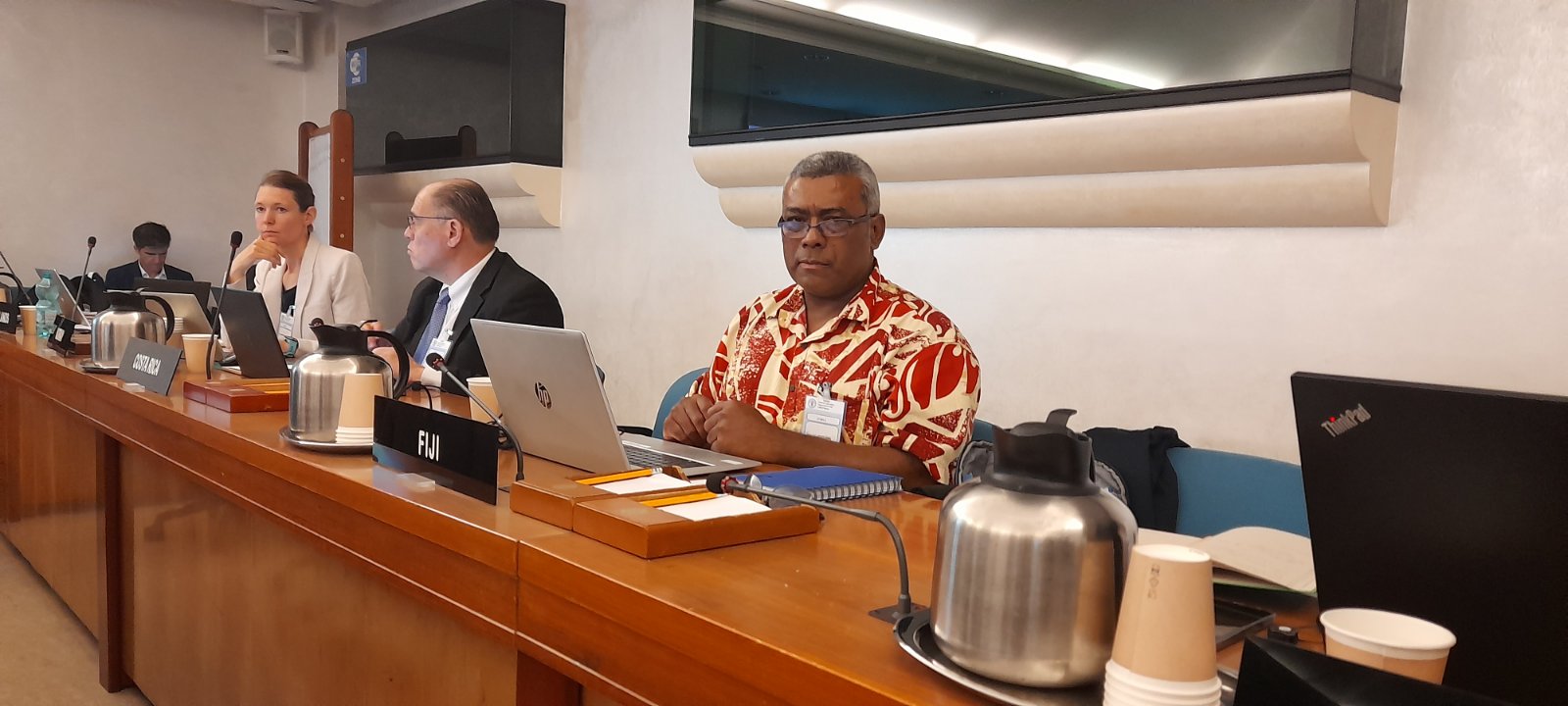1st MEETING OF THE AD HOC EXPERT TEAM ON BIODIVERSITY FOR FOOD AND AGRICULTURE
July 3, 2024

Conserving and restoring crop germplasm and livestock genetic materials is critically important globally and the Ministry of Agriculture and Waterways has taken the lead role by incorporating these initiatives into national programs in crop and livestock to ensure genetic security and sustainability.
This was highlighted at the Food and Agriculture Organisation (UNFAO) Commission on Genetic Resources for Food and Agriculture meeting which is currently underway at the FAO Headquarters in Rome, Italy.
Principal Research Officer (Horticulture) and Fiji focal point to the Commission on Genetic Resources for Food and Agriculture, Mr Savenaca Cuquma says that countries national focal points are reviewing the Framework for Action on Biodiversity for Food and Agriculture as the global community transit to align to the Kunming Montreal Global Framework for Biodiversity and Agriculture (KMGFBA) of 2022.
“We continue to receive genetic resources from other countries and these have been commercialized and incorporated into livestock breeding and crop improvement programs, whereby our farmers have reaped the benefits of high yielding and resilient beef cattle breeds, goats breeds, new crops such as rice, tomatoes, dalo, cassava, potatoes, vegetable seeds which have been evaluated and released in Fiji,” explained Mr. Cuquma.
“We need to align global mechanisms as we are faced with immediate challenges to crops and livestock production," stressed Mr. Cuquma.
Scientists have reported the continued loss of our biodiversity. Forests, coral reefs, mangroves and other habitats are being lost and degraded. Breeds, strains and varieties of domesticated plants and animals face extinction.
"Scientists have also reported decline in many wild species – including pollinator insects, which are vital to farming – and that rates of species loss is accelerating. According to FAO, more than a third of fish stocks are being overfished."
"One mentioned by the highest number of reporting countries as having negative impacts, is changes in land and water use and management. Others include the overuse of external inputs such as pesticides, the over exploitation of resources, the rise of invasive alien species, pollution, and climate change," Mr. Cuquma added.
"The meeting in Rome will enable Fiji and the Pacific Region to plan and re-strategize our plans in conserving biodiversity. A strong national plan will enable Fiji to tap into vast development resources on biodiversity, including capacity building and strengthening national institutional capacity."
Mr. Cuquma added that the ministry will work with all relevant partners to address gaps at national level and ensure a holistic approach is taken in addressing the importance of biodiversity, conservation, biodiversity loss, restoration, including agrobiodiversity (crops, livestock), marine, forest and terrestrial resources.
Once this is achieved, Fiji
will be more resilient and able to absorb changes with food transformation
systems and external effects.
The meeting in Rome will end tomorrow (4th July).
ENDS
